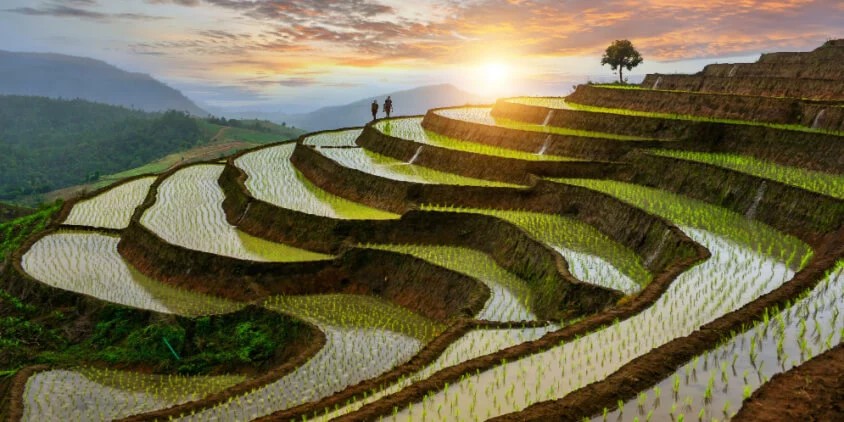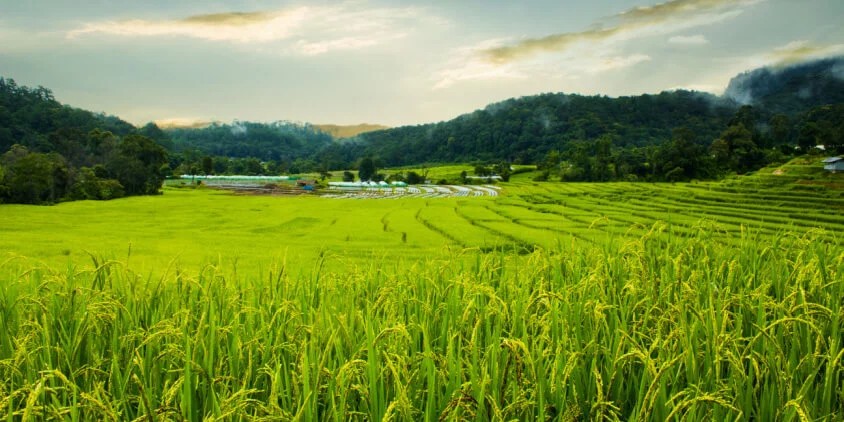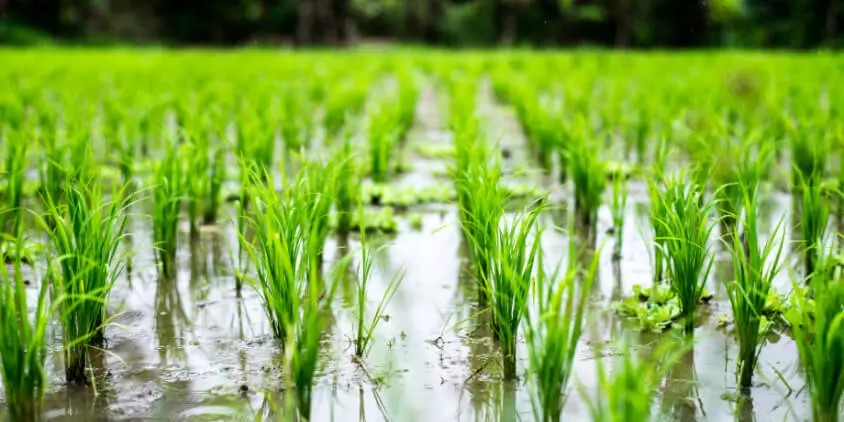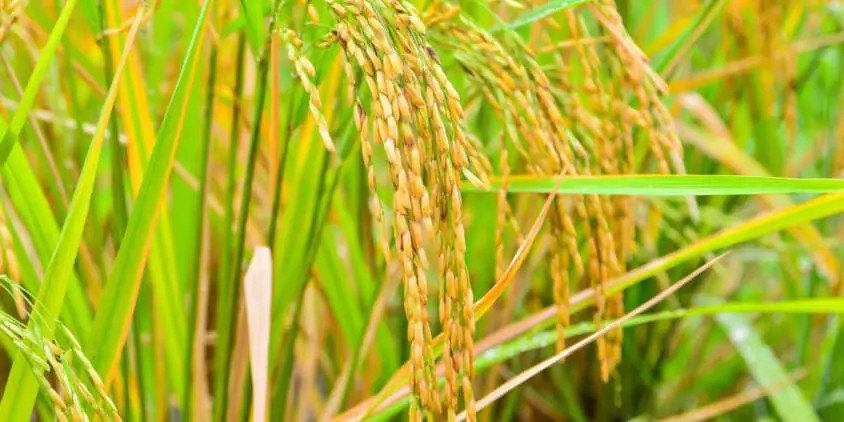Is it possible to participate in farming activities (e.g., rice planting/harvesting for a short time) in Vietnam? Yes, it is possible to immerse yourself in the authentic beauty of Vietnam through farming activities. SIXT.VN offers unique travel experiences allowing you to engage in traditional practices like rice planting and harvesting. With SIXT.VN, discover the heart of Vietnam’s agricultural heritage, cultural immersion, and sustainable tourism.
1. Understanding Agritourism in Vietnam
Agritourism, or agricultural tourism, is a form of tourism that involves visiting farms, ranches, and other agricultural operations. It allows tourists to experience rural life and learn about agricultural practices. Agritourism provides opportunities to experience authentic rural life and connect with local communities, fostering a deeper appreciation for the origin of food and the hard work of farmers.
 Rice field terraces in Vietnam
Rice field terraces in Vietnam
1.1. What is Agritourism?
Agritourism is defined as the intersection of agriculture and tourism, offering visitors a chance to engage in agricultural activities. This can range from picking fruits and vegetables to participating in traditional farming practices. According to research from the Vietnam National Administration of Tourism in 2023, agritourism has seen a surge in popularity, providing unique cultural and educational experiences for tourists.
1.2. Benefits of Participating in Farming Activities
Participating in farming activities can be highly rewarding:
- Cultural Immersion: Experience the local way of life firsthand.
- Educational Opportunity: Learn about traditional farming techniques.
- Physical Activity: Engage in hands-on activities in a natural setting.
- Sustainable Tourism: Support local communities and sustainable agriculture.
- Unique Experience: Create memorable moments far from typical tourist traps.
1.3. Popularity of Agritourism in Vietnam
Vietnam’s rich agricultural heritage makes it an ideal destination for agritourism. Visitors are increasingly interested in sustainable and authentic travel experiences, leading to a growing demand for farm stays and agricultural tours. The Vietnam Tourism Association reports a 30% annual increase in agritourism bookings, highlighting its rising popularity.
2. Opportunities for Farming Activities in Vietnam
Several regions in Vietnam offer unique opportunities to participate in farming activities. From the rice terraces of Sapa to the fruit orchards of the Mekong Delta, there’s something for every traveler.
2.1. Rice Planting and Harvesting in Sapa
Sapa, located in the northern highlands of Vietnam, is renowned for its stunning rice terraces. Many local tour operators offer day trips or multi-day treks that include hands-on experience in rice planting and harvesting. According to a 2022 report by the Sapa Tourism Office, participating in rice farming activities is one of the most sought-after experiences for tourists visiting the region.
2.1.1. Best Time to Visit for Rice Farming
The best time to participate in rice planting is from March to May, while the harvest season is from September to November. These periods offer the most picturesque landscapes and optimal weather conditions for farming activities.
2.1.2. What to Expect During the Experience
Participants can expect to work alongside local farmers, learn about traditional farming methods, and enjoy the breathtaking scenery. The experience typically includes:
- Introduction to Rice Farming: A local farmer will explain the process of rice cultivation.
- Hands-on Planting/Harvesting: Participants will get to plant or harvest rice seedlings.
- Traditional Tools: Using tools like the “dao” (sickle) and “cai” (buffalo plow).
- Local Meals: Enjoying home-cooked meals with the farmer’s family.
- Cultural Exchange: Learning about the local culture and traditions.
 Green rice field in Sapa
Green rice field in Sapa
2.1.3. Booking a Rice Farming Tour
SIXT.VN offers guided tours to Sapa that include rice planting and harvesting activities. These tours provide transportation, accommodation, and expert guidance, ensuring a seamless and enriching experience.
2.2. Fruit Picking in the Mekong Delta
The Mekong Delta, known as the “Rice Bowl of Vietnam,” is also famous for its abundant fruit orchards. Many orchards offer visitors the chance to pick fresh fruits like mangoes, durians, and dragon fruits. According to a 2021 report by the Mekong Delta Tourism Association, fruit picking tours have become a popular attraction for both domestic and international tourists.
2.2.1. Types of Fruits Available
The Mekong Delta is home to a wide variety of tropical fruits, including:
- Mangoes: Sweet and juicy, available from March to May.
- Durians: Known for their pungent smell and creamy texture, available from May to August.
- Dragon Fruits: Refreshing and slightly sweet, available year-round.
- Rambutan: Sweet and tangy, available from May to July.
- Pomelos: Citrus fruit with a sweet and slightly sour taste, available from September to December.
2.2.2. What to Expect During the Experience
Participants can explore the orchards, learn about fruit cultivation, and enjoy the fruits they pick. The experience typically includes:
- Orchard Tour: A local guide will lead you through the orchard, explaining the different types of fruits.
- Fruit Picking: Participants will get to pick their own fruits.
- Tasting Session: Enjoying the freshly picked fruits on the spot.
- Local Interactions: Interacting with the orchard owners and learning about their farming practices.
- Boat Ride: Exploring the canals and waterways of the Mekong Delta.
2.2.3. Booking a Fruit Picking Tour
SIXT.VN offers customized tours to the Mekong Delta, including fruit picking activities. These tours provide transportation, accommodation, and guided excursions to local orchards, ensuring a memorable experience.
2.3. Vegetable Farming in Da Lat
Da Lat, located in the Central Highlands, is known for its temperate climate and fertile soil, making it an ideal location for vegetable farming. Many farms in Da Lat offer visitors the chance to participate in vegetable planting and harvesting. According to a 2023 report by the Da Lat Tourism Promotion Center, vegetable farming tours are gaining popularity among tourists seeking eco-friendly and educational experiences.
2.3.1. Types of Vegetables Grown
Da Lat is home to a wide variety of vegetables, including:
- Lettuce: Crisp and refreshing, available year-round.
- Cabbage: Versatile and nutritious, available year-round.
- Carrots: Sweet and crunchy, available year-round.
- Broccoli: Rich in vitamins and minerals, available from October to December.
- Strawberries: Sweet and juicy, available from November to April.
2.3.2. What to Expect During the Experience
Participants can learn about vegetable farming techniques, plant seeds, and harvest crops alongside local farmers. The experience typically includes:
- Farm Tour: A local farmer will guide you through the farm, explaining the different types of vegetables.
- Vegetable Planting: Participants will get to plant seeds or seedlings.
- Harvesting: Picking ripe vegetables under the guidance of the farmer.
- Cooking Class: Learning how to prepare traditional Vietnamese dishes using the harvested vegetables.
- Local Market Visit: Exploring the vibrant local markets and purchasing fresh produce.
2.3.3. Booking a Vegetable Farming Tour
SIXT.VN offers guided tours to Da Lat, including vegetable farming activities. These tours provide transportation, accommodation, and immersive experiences in local farms, ensuring an educational and enjoyable visit.
3. How to Participate in Farming Activities
Participating in farming activities in Vietnam is easy with the right planning and resources. Here’s how you can get involved:
3.1. Finding Local Farms and Tours
- Online Research: Use search engines and travel websites to find farms and tour operators offering farming experiences.
- Travel Agencies: Contact travel agencies like SIXT.VN to book customized tours that include farming activities.
- Tourist Information Centers: Visit local tourist information centers for recommendations and contacts.
- Homestays: Stay in local homestays that offer farming experiences as part of their hospitality.
- Online Forums: Check travel forums and social media groups for recommendations and tips from other travelers.
3.2. Booking Options with SIXT.VN
SIXT.VN provides various booking options for travelers interested in farming activities:
- Customized Tours: Tailored tours based on your interests, duration, and budget.
- Day Trips: Short excursions to farms and orchards from major cities.
- Multi-Day Treks: Immersive treks through rural areas with farming activities included.
- Farm Stays: Accommodation in local farms with opportunities to participate in daily farming tasks.
- Transportation Services: Airport transfers, private car rentals, and guided tours to farming locations.
3.3. What to Bring and Wear
To make the most of your farming experience, it’s important to bring the right gear:
- Comfortable Clothing: Lightweight, breathable clothing suitable for outdoor activities.
- Sturdy Shoes: Closed-toe shoes or boots that can handle muddy fields.
- Sun Protection: Hat, sunglasses, and sunscreen to protect against the sun.
- Insect Repellent: To ward off mosquitoes and other insects.
- Gloves: To protect your hands during planting and harvesting.
- Water Bottle: To stay hydrated during the activities.
 Rice field in Vietnam with farmers
Rice field in Vietnam with farmers
4. Cultural Etiquette and Respect
When participating in farming activities, it’s important to respect local customs and traditions:
4.1. Understanding Local Customs
- Greetings: Greet farmers with a polite “Xin chào” (hello) and a slight bow.
- Dress Code: Dress modestly and avoid wearing revealing clothing.
- Communication: Communicate respectfully and listen attentively to the farmers’ instructions.
- Photography: Ask for permission before taking photos of the farmers or their families.
- Gift Giving: Consider bringing small gifts like fruit or snacks to show your appreciation.
4.2. Respecting the Farmers and Their Land
- Follow Instructions: Adhere to the farmers’ guidance and instructions during the activities.
- Avoid Waste: Dispose of trash properly and avoid littering on the farm.
- Respect Boundaries: Stay within designated areas and avoid trespassing on private property.
- Support Local Economy: Purchase local products and souvenirs to support the farmers and their communities.
- Be Mindful of Water Usage: Conserve water and avoid wasting it during farming activities.
4.3. Language Tips
- Basic Phrases: Learn a few basic Vietnamese phrases to communicate with the farmers.
- Translator: Consider hiring a local translator if you don’t speak Vietnamese.
- Body Language: Use non-verbal cues like smiling and nodding to show your understanding and appreciation.
- Patience: Be patient and understanding, as communication may sometimes be challenging.
- Apps: Use translation apps on your smartphone to help with communication.
5. Sustainable Tourism and Responsible Farming
Participating in farming activities is a great way to support sustainable tourism and responsible farming practices in Vietnam:
5.1. Supporting Local Communities
- Economic Benefits: Agritourism provides income and employment opportunities for local communities.
- Cultural Preservation: It helps preserve traditional farming practices and cultural heritage.
- Community Development: It supports community development projects like schools and healthcare facilities.
- Empowerment: It empowers local farmers and entrepreneurs to improve their livelihoods.
- Education: It raises awareness about the importance of sustainable agriculture and cultural preservation.
5.2. Environmental Conservation
- Eco-Friendly Practices: Many farms use organic and sustainable farming practices that minimize environmental impact.
- Biodiversity Protection: Agritourism helps protect biodiversity by promoting conservation efforts.
- Water Conservation: It encourages water conservation and efficient irrigation methods.
- Soil Health: It supports soil health and prevents soil erosion.
- Waste Reduction: It promotes waste reduction and recycling practices.
5.3. Ethical Considerations
- Fair Wages: Ensure that farmers and workers are paid fair wages and provided with decent working conditions.
- Responsible Practices: Promote responsible tourism practices that minimize environmental and social impact.
- Respect for Culture: Show respect for local culture and traditions.
- Informed Choices: Make informed choices about the farms and tours you support, ensuring that they adhere to ethical and sustainable practices.
- Feedback: Provide feedback to tour operators and farms to help them improve their sustainability efforts.
6. Practical Tips for a Successful Farming Experience
To ensure a memorable and rewarding farming experience, keep these practical tips in mind:
6.1. Planning Your Trip
- Research: Research different farming locations and activities to find the best fit for your interests.
- Timing: Plan your trip during the optimal planting or harvesting seasons.
- Budget: Set a budget for your trip, including transportation, accommodation, and tour costs.
- Itinerary: Create a detailed itinerary to ensure that you make the most of your time.
- Book in Advance: Book your tours and accommodation in advance, especially during peak season.
6.2. Health and Safety
- Vaccinations: Consult your doctor about necessary vaccinations and health precautions.
- Travel Insurance: Purchase travel insurance that covers medical emergencies and trip cancellations.
- First Aid Kit: Bring a basic first aid kit with essentials like bandages, antiseptic wipes, and pain relievers.
- Stay Hydrated: Drink plenty of water to stay hydrated, especially in hot and humid conditions.
- Be Aware of Your Surroundings: Be aware of your surroundings and take precautions to avoid accidents and injuries.
6.3. What to Expect
- Physical Labor: Be prepared for physical labor and outdoor activities.
- Weather Conditions: Check the weather forecast and pack accordingly.
- Cultural Differences: Be open-minded and respectful of cultural differences.
- Unpredictability: Be flexible and prepared for unexpected changes in plans.
- Enjoy the Experience: Relax, enjoy the experience, and immerse yourself in the local culture.
7. Common Misconceptions About Farming in Vietnam
There are several misconceptions about farming in Vietnam that should be addressed:
7.1. “Farming is Easy”
- Reality: Farming is hard work that requires skill, knowledge, and dedication.
- Explanation: Farmers work long hours in challenging conditions to produce food and support their families.
7.2. “Farming is Only for Locals”
- Reality: Tourists can participate in farming activities and learn about local practices.
- Explanation: Many farms offer agritourism programs that welcome visitors to experience rural life.
7.3. “Farming is Unprofitable”
- Reality: Farming can be profitable with the right techniques and market access.
- Explanation: Farmers can improve their livelihoods by adopting sustainable practices and diversifying their income sources.
7.4. “Farming is Monotonous”
- Reality: Farming involves a variety of tasks and challenges that keep it interesting.
- Explanation: Farmers must adapt to changing weather conditions, manage crops and livestock, and market their products.
7.5. “Farming is Outdated”
- Reality: Farming is constantly evolving with new technologies and techniques.
- Explanation: Farmers are adopting innovative practices like precision agriculture and organic farming to improve efficiency and sustainability.
8. Stories from Travelers Who Participated in Farming Activities
Here are some stories from travelers who participated in farming activities in Vietnam:
8.1. Sarah from the USA
“I had an amazing time planting rice in Sapa. It was hard work, but the scenery was breathtaking, and I learned so much about Vietnamese culture. The local farmers were so welcoming and shared their knowledge with me. It was definitely a highlight of my trip.”
8.2. Mark from Australia
“Picking fruits in the Mekong Delta was a fantastic experience. The orchards were so lush and vibrant, and the fruits were incredibly delicious. I enjoyed learning about the different types of fruits and how they are grown. The boat ride through the canals was also a lot of fun.”
8.3. Emily from the UK
“Vegetable farming in Da Lat was a unique and educational experience. I loved planting seeds and harvesting fresh vegetables alongside the local farmers. The cooking class was also a highlight, as I learned how to prepare traditional Vietnamese dishes using the vegetables we harvested.”
 Farmers working in rice paddy in Vietnam
Farmers working in rice paddy in Vietnam
9. Frequently Asked Questions (FAQs)
9.1. Is it safe to participate in farming activities in Vietnam?
Yes, it is generally safe to participate in farming activities in Vietnam. However, it is important to follow the instructions of the local farmers and take necessary precautions to avoid accidents and injuries.
9.2. What is the best time of year to participate in farming activities in Vietnam?
The best time of year depends on the specific activity and location. Rice planting is best from March to May, while the harvest season is from September to November. Fruit picking in the Mekong Delta is best from March to August, depending on the fruit. Vegetable farming in Da Lat can be done year-round.
9.3. Do I need any special skills or experience to participate in farming activities?
No, you don’t need any special skills or experience to participate in farming activities. The local farmers will provide guidance and instructions.
9.4. What should I wear when participating in farming activities?
Wear comfortable clothing, sturdy shoes, and sun protection. Bring gloves to protect your hands.
9.5. Can I bring my children to participate in farming activities?
Yes, many farms welcome children and offer age-appropriate activities.
9.6. How can I book a farming tour in Vietnam?
You can book a farming tour through travel agencies like SIXT.VN or directly with local farms.
9.7. What is the typical cost of a farming tour in Vietnam?
The cost of a farming tour depends on the duration, location, and activities included. Day trips can cost around $50-$100, while multi-day treks can cost $200-$500.
9.8. What are the benefits of participating in farming activities in Vietnam?
The benefits include cultural immersion, educational opportunities, physical activity, sustainable tourism, and unique experiences.
9.9. How can I support sustainable tourism and responsible farming in Vietnam?
You can support sustainable tourism by choosing eco-friendly farms and tours, respecting local customs, and purchasing local products.
9.10. What if I have allergies or dietary restrictions?
Inform the tour operator or farm in advance about any allergies or dietary restrictions.
10. Conclusion: Your Invitation to Experience Vietnam’s Farming Heritage
Participating in farming activities in Vietnam offers a unique and rewarding way to connect with the country’s rich agricultural heritage and support local communities. Whether you’re planting rice in Sapa, picking fruits in the Mekong Delta, or harvesting vegetables in Da Lat, you’ll gain a deeper appreciation for the hard work and dedication of Vietnamese farmers. Let SIXT.VN be your guide to exploring Vietnam’s farming landscapes and creating unforgettable memories. Discover the beauty and authenticity of Vietnam through its farming traditions.
Ready to embark on an enriching agricultural adventure? Visit SIXT.VN today to explore our curated tours and services, including airport transfers, diverse hotel options, and guided excursions to Vietnam’s stunning farming locations. Contact us now via Hotline/WhatsApp: +84 986 244 358 or visit our office at 260 Cau Giay, Hanoi, Vietnam, and let us help you plan your personalized journey through Vietnam’s heartland.



